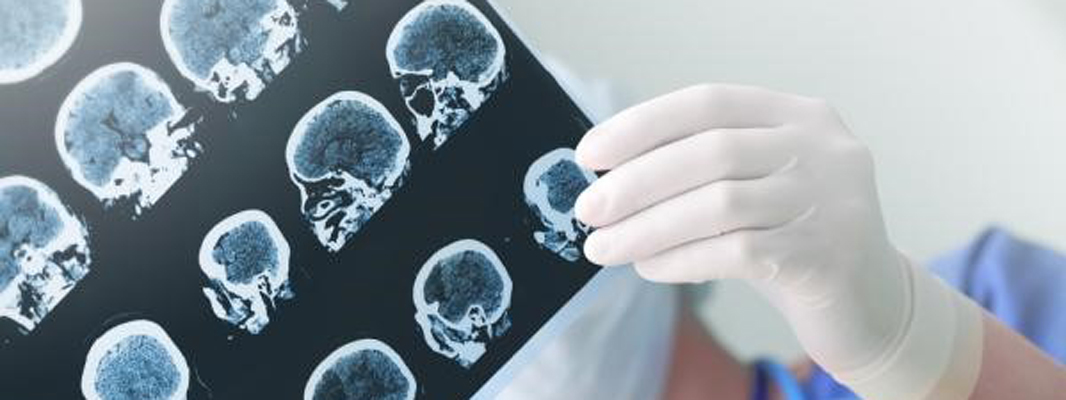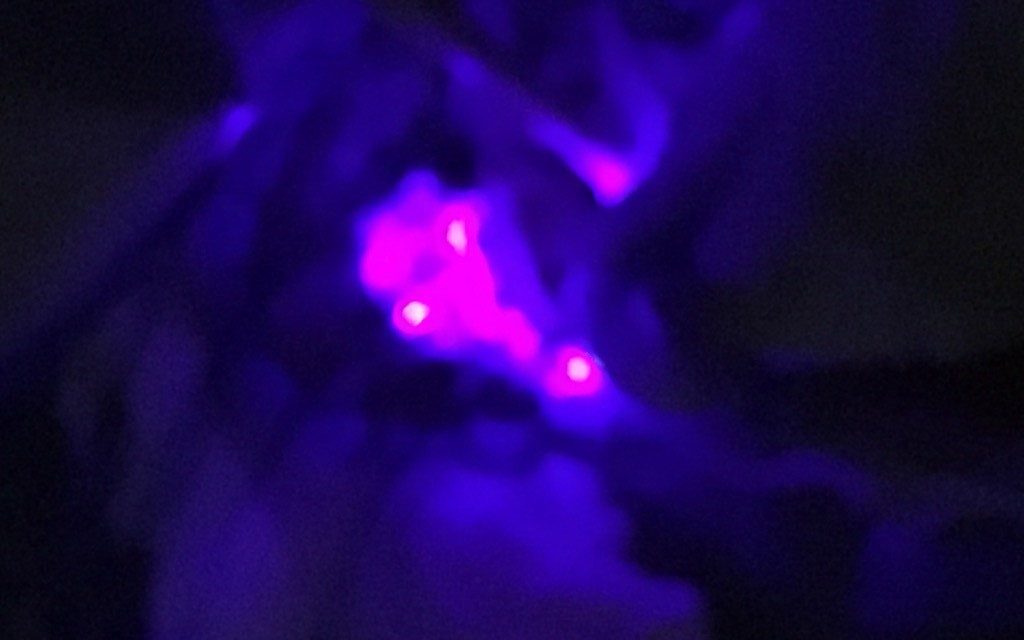Treating glioblastoma
The best treatment for glioblastoma currently is surgery to remove as much of the tumour as possible, followed by a combination of chemotherapy and radiotherapy.

Surgery for glioblastoma
Your surgeon will try to remove as much of the tumour as possible. This is known as debulking.
With glioblastomas it can be difficult to remove the whole tumour because:
- they are diffuse, this means they have threadlike elements that spread out into the brain
- it can be hard to tell the difference between the edges of the main part of the tumour and normal brain tissue.
This means that parts of the tumour may get left behind after surgery.

The Pink Drink
The Pink Drink (5-ALA) is a valuable surgical aid which when taken prior to surgery and causes tumour cells to glow bright pink under UV light. This helps neurosurgeons see and successfully remove more of a tumour during surgery while causing less damage to healthy tissue.
In fact, the whole tumour is successfully removed in 70.5% of cases when the Pink Drink is used, which is up from around 30% without this valuable surgical aid.
Treating glioblastoma with chemoradiation
Chemoradiation comprises radiotherapy over a period of weeks along with rounds of the chemotherapy. It is used to slow the growth of any tumour cells that cannot be removed by surgery.
Effectiveness of glioblastoma treatments
Unfortunately glioblastomas are aggressive tumours and often appear resistant to treatment. This is probably due to the fact that the cells within the tumour are not all of the same type. This is known as ‘heterogeneity’. This means that treatments will kill off some types of cell within the glioblastoma, but leave others, which can then continue to grow.
However, some of the research into the genes, which play a role in glioblastoma (GBM) development and growth, are starting to give us information about who may respond better to certain treatments for example biomarker tests.
Many centres routinely test for these gene mutations, but if your hospital does not and you would like to have a test, ask your neuro-oncologist for information and advice about whether you are suitable.
Get your free brain tumour information pack
Our Brain Tumour Information Pack has been designed to help you cope with your diagnosis and support you during this difficult time. It can help to guide you through the healthcare system, answer your questions, and reassure you that you’re not alone so that you feel confident when discussing treatment and care options with your medical team.
Unfortunately, we’re currently unable to send Information Packs by post. All the information contained in the pack can be found in the email you’ll receive after completing this form.